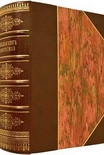Myths and Legends of China by E. Werner (free ebook reader for iphone TXT) 📗

- Author: E. Werner
Book online «Myths and Legends of China by E. Werner (free ebook reader for iphone TXT) 📗». Author E. Werner
The Chinese Intellect
The Chinese are not unimaginative, but their minds did not go on to the construction of any myths which should be world-great and immortal; and one reason why they did not construct such myths was that their intellectual progress was arrested at a comparatively early stage. It was arrested because there was not that contact and competition with other peoples which demands brain-work of an active kind as the alternative of subjugation, inferiority, or extinction, and because, as we have already seen, the knowledge required of them was mainly the parrot-like repetition of the old instead of the thinking-out of the new1—a state of things rendered possible by the isolation just referred to. Confucius discountenanced discussion about the supernatural, and just as it is probable that the exhortations of Wên Wang, the virtual founder of the Chou dynasty (1121–255 B.C.), against drunkenness, in a time before tea was known to them, helped to make the Chinese the sober people that they are, so it is probable—more than probable—that this attitude of Confucius may have nipped in the bud much that might have developed a vigorous mythology, though for a reason to be stated later it may be doubted if he thereby deprived the world of any beautiful and marvellous results of the Page 62highest flights of poetical creativeness. There are times, such as those of any great political upheaval, when human nature will assert itself and break through its shackles in spite of all artificial or conventional restraints. Considering the enormous influence of Confucianism throughout the latter half of Chinese history—i.e. the last two thousand years—it is surprising that the Chinese dared to think about supernatural matters at all, except in the matter of propitiating their dead ancestors. That they did so is evidence not only of human nature’s inherent tendency to tell stories, but also of the irrepressible strength of feeling which breaks all laws and commandments under great stimulus. On the opposing unæsthetic side this may be compared to the feeling which prompts the unpremeditated assassination of a man who is guilty of great injustice, even though it be certain that in due course he would have met his deserts at the hands of the public executioner.
The Influence of Religion
Apart from this, the influence of Confucianism would have been even greater than it was, but for the imperial partiality periodically shown for rival doctrines, such as Buddhism and Taoism, which threw their weight on the side of the supernatural, and which at times were exalted to such great heights as to be officially recognized as State religions. These, Buddhism especially, appealed to the popular imagination and love of the marvellous. Buddhism spoke of the future state and the nature of the gods in no uncertain tones. It showed men how to reach the one and attain to the other. Its founder was virtuous; his commandments pure and life-sustaining. It supplied in great part what Confucianism lacked. And, as in the Page 63fifth and sixth centuries A.D., when Buddhism and Taoism joined forces and a working union existed between them, they practically excluded for the time all the “chilly growth of Confucian classicism.”
Other opponents of myth, including a critical philosopher of great ability, we shall have occasion to notice presently.
History and Myth
The sobriety and accuracy of Chinese historians is proverbial. I have dilated upon this in another work, and need add here only what I inadvertently omitted there—a point hitherto unnoticed or at least unremarked—that the very word for history in Chinese (shih) means impartiality or an impartial annalist. It has been said that where there is much myth there is little history, and vice versa, and though this may not be universally true, undoubtedly the persistently truthful recording of facts, events, and sayings, even at the risk of loss, yea, and actual loss of life of the historian as the result of his refusal to make false entries in his chronicle at the bidding of the emperor (as in the case of the historiographers of Ch’i in 547 B.C.), indicates a type of mind which would require some very strong stimulus to cause it to soar very far into the hazy realms of fanciful imagination.
Chinese Rigidity
A further cause, already hinted at above, for the arrest of intellectual progress is to be found in the growth of the nation in size during many centuries of isolation from the main stream of world-civilization, without that increase in heterogeneity which comes from the moulding by forces external to itself. “As iron sharpeneth iron, so a man sharpeneth the countenance of his friend.” Page 64Consequently we find China what is known to sociology as an ‘aggregate of the first order,’ which during its evolution has parted with its internal life-heat without absorbing enough from external sources to enable it to retain the plastic condition necessary to further, or at least rapid, development. It is in a state of rigidity, a state recognized and understood by the sociologist in his study of the evolution of nations.
The Prerequisites to Myth
But the mere increase of constructive imagination is not sufficient to produce myth. If it were, it would be reasonable to argue that as intellectual progress goes on myths become more numerous, and the greater the progress the greater the number of myths. This we do not find. In fact, if constructive imagination went on





Comments (0)